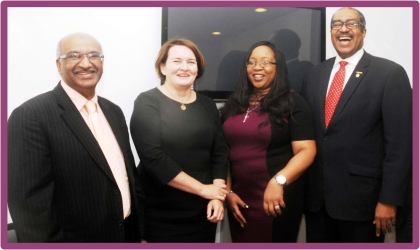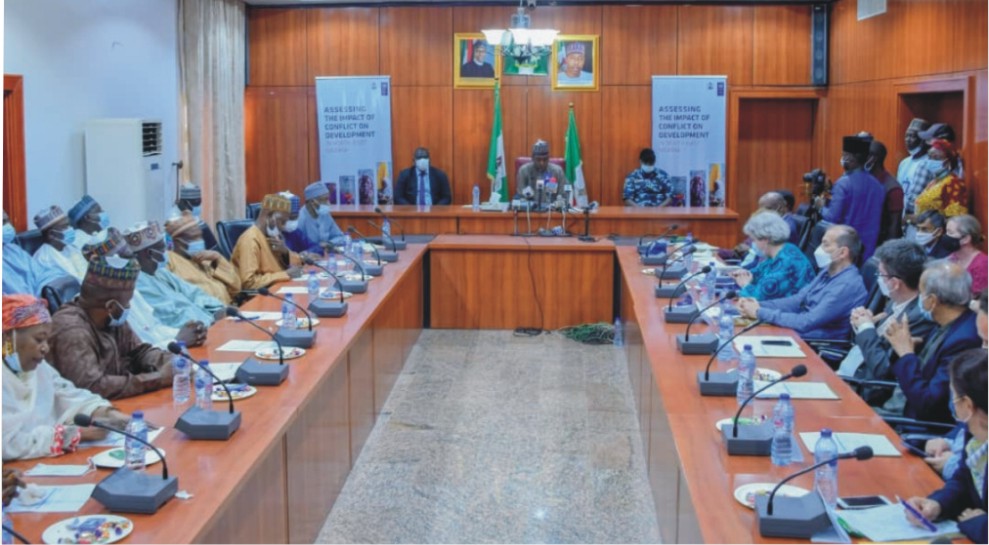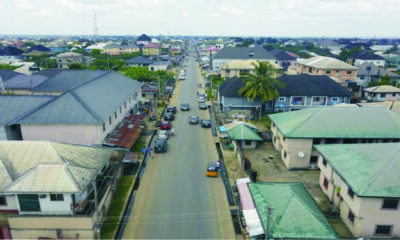Business
Analysts Urge FG To Invest In Non-Oil Sectors
Two financial analysts have urged the Federal Government to exploit non-oil sectors of the economy to boost the country’s revenue and external reserves.
Our correspondent reports that the analysts spoke against the backdrop of the recent N1.8 billion fall in the nation’s external reserve.
President, Finance Houses Association of Nigeria (FHAN), Mr Samuel Durojaiye, said the fall was an indication of instability in oil export and price.
He said: “There’s instability in oil export and price, wherewith over 90 per cent of our foreign exchange earnings are generated.
“Though the drop has not reached a critical level and it should not jeopardise the economy, government needs to look into other potential sectors to generate foreign currency.
“Government should also beef up the oil sector and increase oil export to match up our consumption.”
Durojaiye further advised government to reduce its running cost and direct majority of its expenditure toward long term structural projects.
A former president of the FHAN, Mr Eddie Osarenkhoe, said that government investing in other sectors of the economy would help to generate more external earnings.
According to him, other non-oil sectors can boost the country’s foreign currency if government invests adequately in them.
Osarenkhoe said: “There is also a need to review our taxation system. It is possible for us to generate huge revenues from both direct and indirect tax.”
Our correspondent also reports that a data posted on the Website of the Central Bank of Nigeria on Aug. 6, showed that the nation’s external reserves dropped by $1.8 billion.
The data showed that external reserves dropped from the peak of 48.85 billion dollars in May to 46.98 billion dollars on August 5.

L-R: Chief Operating Officer, Marzars, South Africa, Kariem Hoosain; Chief Executive Officer, Association of Chartered Certified Accountants (ACCA), Helen Brand; Head of ACCA Nigeria, Oluwatoyin Ademola and Chief Executive Officer, Mazars, Nigeria, Olumuyiwa Coker, during the ACCA Chief Executive’s visit to Lagos last Friday
Business
Debt Servicing Hindering Nigeria’s Dev – IMF

The International Monetary Fund (IMF) has opened up on Nigeria’s socio/economic development issues, saying that the country allocates the majority of its revenue to debt servicing, leaving limited funds for critical development projects.
Disclosing this while speaking during the Fiscal Monitor press briefing at the IMF/World Bank Annual Meetings in Washington DC, David Furceri, Division Chief of the IMF’s Fiscal Affairs Department, emphasised the need for Nigeria to adopt more effective revenue mobilisation strategies to ease this financial burden.
Furceri noted that Nigeria’s debt service-to-revenue ratio stands at around 60 per cent, significantly constraining the government’s ability to invest in social and economic programmes.
Although the debt service-to-GDP ratio has declined from nearly 100 per cent to 60 per cent, he stressed that the country must further reduce the share of its revenue allocated to debt repayments by focusing on broadening its tax base.
He said, “There is a need to grow the revenue-to-GDP ratio. For a country Like Nigeria, the Debt Service-to-Revenue is about 60 per cent. What that means is that a larger part of the revenue of the country goes into debt servicing.
“What we recommend for countries like Nigeria, if they can improve their revenue mobilisation, they will be able to reduce the portion of the revenue that goes into debt servicing.
“It is important to broaden the tax base in order to have more revenue and especially in Nigeria to put in place a system and mechanism that is transparent and efficient to assist the government in collecting more revenue”.
He called for the implementation of a transparent and efficient tax collection system, urging the government to improve its fiscal operations to generate more income.
Also, the IMF’s Fiscal Monitor Report released last Thursday highlighted projections that Nigeria’s debt-to-GDP ratio, currently at 50.7 per cent, is expected to drop to 49.6 per cent by 2025.
It noted that the country’s public debt includes overdrafts from the Central Bank of Nigeria and liabilities from the Asset Management Corporation of Nigeria.
“The overdrafts and government deposits at the Central Bank of Nigeria almost cancel each other out, and the Asset Management Corporation of Nigeria debt is roughly halved”, the report noted.
Business
SON To Simplify SMEs Certification Process

The Standards Organisation of Nigeria (SON) has revealed plans to support Small and Medium Enterprises (SMEs) across the country by simplifying access to certification and standards, in line with global best practices.
According to the agency, its initiative at the forefront of this drive is the Mandatory Conformity Assessment Programme, designed to assist local manufacturers in maintaining quality and safety standards, a key requirement for gaining consumer trust and penetrating international markets.
Acting Regional Director for SON in Lagos, Theresa Ojomo, disclosed this during the annual Walk for Standards event held in Lagos to mark World Standards Day.
She stated SON’s role in facilitating the growth of small businesses through programmes tailored to their needs.
“We have brought it down to the very small micro-organisations, encouraging them that they can imbibe standards”, she said.
She noted that businesses operating with minimal infrastructure could ensure quality in their production processes with SON’s support.
Ojomo explained that SON had made the process of adhering to standards more affordable and less burdensome for SMEs.
“We have brought in schemes that are very low in the economy because they always complained that it’s costly to have standards and quality.
“SON conducts only one inspection per year for micro-enterprises to ease the compliance process. The government and SON are ensuring that as small as the unit is, you can imbibe standards”, she remarked.
The Head of Codex, Nutrition and Tobacco Monitoring at SON, Yunusa Mohammed, reiterated that the organisation was committed to ensuring that consumers get value for their money by enforcing quality and safety standards.
“The ultimate aim for developing standards is to ensure quality and safety. Without testing the product to the requirements of the product standard, there is no way you can give that assurance”, he said.
Mohammed noted that SON had invested in state-of-the-art laboratories across the country to further support SMEs by offering testing services that help small businesses certify their products for both local and international markets.
Business
Group Partners Police Against Piracy In Nigeria’s Waterways
Active Marine Surveillance Coast Guard limited, a private security agency, has stated its preparedness to assist the police and other security agencies to check piracy along the nation’s waterways.
Director General of the Security outfit, Commander Godwin Amare, said this during the passing out parade of over 150 members of the Coast Guard in Port Harcourt.
He said apart from checking piracy, Active Marine Surveillance Coast Guard limited also provides security at jetties across the state and check pollution along the waterways, as well as mount security surveillance across the country.
Amare, however, said his security outfit needs the support of the state and federal governments in the discharge of its functions..
He said with government support, the problem of insecurity will be reduced in the states.
Amare also stressed the need for the government to engage the outfit in the provision of security in the state, adding that by doing so, government will also be creating employment opportunities for the people.
According to him, it’s men can also be engaged in the provision of security at strategic locations across the state.
He used the occasion to commend the Deputy Director General of the outfit, Captain Dain Elekima Joyfull, as well as Captain Emberra Michael Niyikpen, and Pastor Anthony Afakwa, for their support.
Speaking, the Rivers State Commissioner of Police, Cp Mustafa Bala, who was represented at the occasion by SP Luka, urged the newly passed out officers of the Civilian joint taskforce and Active Marine Coast Guard limited to be professional in the conduct of their duties.
He also pledged to provide them with the necessary support.
Also speaking, the Rivers State Commandant of the Civilian Joint Taskforce, Commander Richard Akpobari, said his group is prepared to support the security agencies to curb criminalities in the state.
According to him, the situation aims to reduce the burden of providing security in the state.
By: John Bibor
-

 News3 days ago
News3 days agoSeadogs Warn Of Debt Crisis As FG Seeks Fresh N2.2bn Loan
-

 Oil & Energy3 days ago
Oil & Energy3 days agoTotalEnergies Plans $750m Gas Project In Nigeria
-

 Business23 hours ago
Business23 hours agoReport Cash Withdrawal Issues At ATMs from 1st Dec – CBN
-

 Features18 hours ago
Features18 hours agoGood Governance: Gov Fubara’s Eyes On The Ball Amid Distractions
-

 Rivers3 days ago
Rivers3 days agoRSG Launches Oil, Gas Youth Empowerment Initiative
-

 News3 days ago
News3 days agoAfenifere, Ohanaeze, ACF Demand Restructuring, Want Nigeria Renamed
-
Rivers22 hours ago
Commissioner Rewards Outstanding Staff With #100,000 Cash
-
Opinion17 hours ago
Nigeria’s ‘Charge And Bail’ Syndrome And Justice

